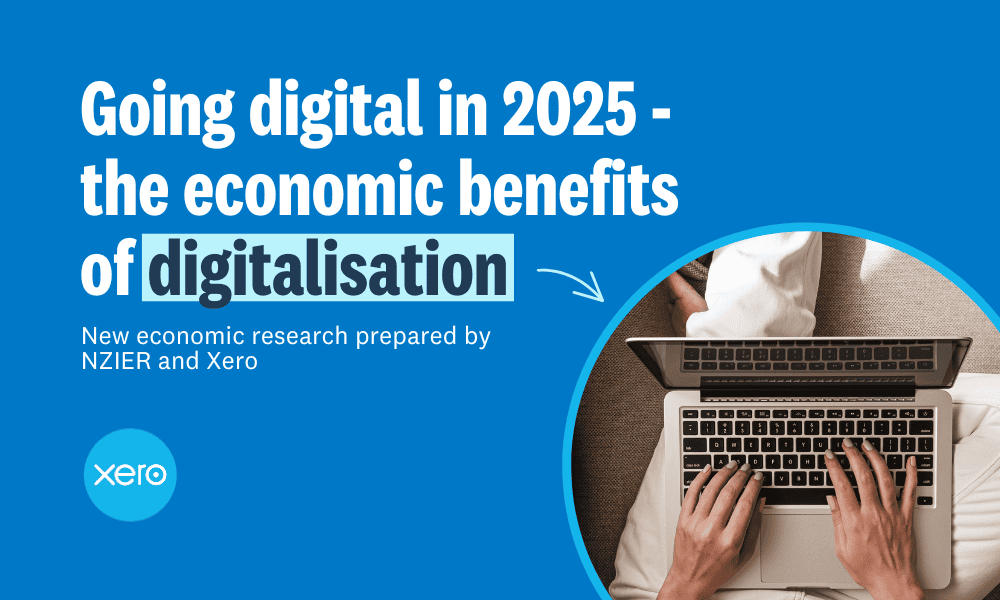
New report: Going digital in 2025 – The economic benefits of digital tools

LAST UPDATED: May 21, 2025

If you’re a small business owner, accountant or bookkeeper, you already know how crucial it is to stay ahead in a competitive and ever-changing digital environment.
A new report from Xero, in partnership with the New Zealand Institute of Economic Research (NZIER), highlights the productivity gains Kiwi small- and medium-size enterprises (SMEs) stand to gain through accelerated digitalisation:
- According to the report, boosting digital adoption across New Zealand’s small businesses could contribute an additional $8.6 billion to our GDP in 2025 alone.
Why digitalisation matters
Productivity is one of the most important drivers of long-term business success. It affects everything from wages and profitability to innovation and growth.
Digitalisation and adoption of cloud-based tools can help small businesses stay agile, reach new customers in different markets, and build resilience in uncertain times.
Where are we falling behind?
Many New Zealand SMEs have adopted the basics: websites, email, and basic accounting software. Yet, the uptake of more advanced digital tools is far less consistent.
Key areas where adoption is lacking:
- Cloud-based enterprise systems
- AI and data analytics
- Integrated e-commerce platforms
- Digital automation tools
This digital divide is putting New Zealand businesses at a competitive disadvantage, both locally and globally.
Global leaders
The report summarises what leading digitalised countries around the world have done to encourage digitalisation to boost SME productivity and their economies:
- Finland has a focus on SME digital integration, underpinned by a strategy focused on infrastructure, skills development, and targeted support. Initiatives such as Business Finland’s Innovation Vouchers and Tempo Funding offers SMEs grants of up to €50,000 for piloting digital projects, focusing on cloud computing, cybersecurity, and AI.
- The Netherlands emphasises financial incentives and sector-specific programmes such as Mijn Digitale Zaak (My Digital Business).
- Denmark integrates digitalisation with industrial strategies, offering financial and advisory support.
- Canada’s Canada Digital Adoption Program (CDAP) provides grants and loans for e-commerce and digital advice.
- Singapore uses structured guidance and financial incentives via programmes like SMEs Go Digital.
- South Korea’s Digital New Deal invests in infrastructure, smart factories, and AI.
These examples show what’s possible when governments and industries work together to support digital transformation.
What we’re calling for
Based on the report findings, we recommend the Government reform and formalise the Small Business Advisory Group (SBAG), including expanding its membership to include industry and academia to deep dive into digitalisation strategies for Kiwi small businesses to drive adoption and productivity.
Why this matters to you
Small business owners, and their advisors and bookkeepers should be taking stock of their digital tool uptake, begin to identify simple digital wins like moving invoicing online, and think about what tools are available to them to improve productivity.






